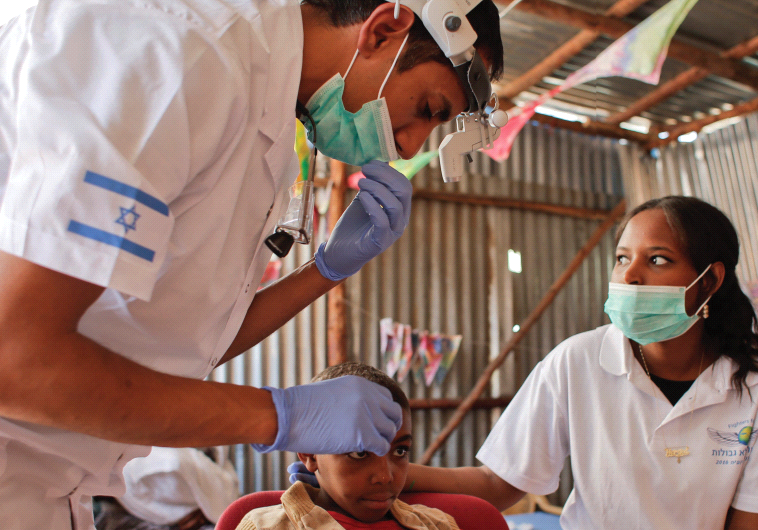Using the power of Israeli backpackers to help the world
“The idea was to use the backpackers as the infrastructure for people to do ‘blue-and-white’ humanitarian work to show the real Israel to the world.”
 Fighters for Life volunteers are seen at a makeshift medical clinic in Ethiopia(photo credit: FIGHTERS FOR LIFE)
Fighters for Life volunteers are seen at a makeshift medical clinic in Ethiopia(photo credit: FIGHTERS FOR LIFE)